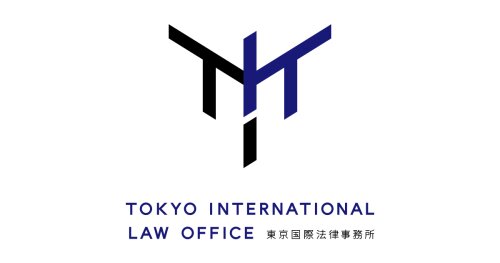Best Licensing Lawyers in Japan
Share your needs with us, get contacted by law firms.
Free. Takes 2 min.
Or refine your search by selecting a city:
List of the best lawyers in Japan
About Licensing Law in Japan
Licensing law in Japan encompasses a wide range of legal practices that govern the permission to use rights, properties, and technology owned by individuals or companies. Licensing agreements in Japan are commonly used in various industries, including technology, entertainment, pharmaceuticals, and manufacturing. These agreements enable the licensor to authorize the licensee to utilize, distribute, and sometimes modify intellectual properties or products, while ensuring that legal protections and remunerations are in place.
Why You May Need a Lawyer
Seeking legal assistance in the field of licensing can be crucial for several reasons:
- Complexity of Agreements: Licensing agreements can be detailed and complex, involving various legal and technical terms that can be difficult to interpret without professional help.
- Intellectual Property Protection: Ensuring that your intellectual property rights are adequately protected and enforced in the licensing agreement.
- Compliance with Regulations: Navigating the regulatory environment in Japan to ensure adherence to relevant laws and standards.
- Dispute Resolution: Addressing any conflicts or disputes that may arise between licensors and licensees effectively and efficiently.
Local Laws Overview
Licensing in Japan is heavily influenced by the country's intellectual property laws, which include the Copyright Law, Patent Act, Trademark Act, and Industrial Design Law. Key aspects include:
- Intellectual Property Protection: Japanese law provides robust protection for various forms of intellectual property, which is critical for licensing agreements.
- Antitrust Laws: Licensing agreements must comply with Japan’s Antimonopoly Act to prevent anti-competitive practices.
- Contract Law: The Civil Code governs the formation and enforcement of contracts, including licensing agreements.
- Technology Transfer: Licensing often involves the transfer of technology, which may require compliance with specific regulations regarding patents and trade secrets.
Frequently Asked Questions
1. What is a licensing agreement?
A licensing agreement is a legal contract in which the licensor allows the licensee to use their intellectual property or products under specific conditions.
2. Do I need a patent to license a product in Japan?
While having a patent can strengthen your position, it is not mandatory to have a patent to license a product. However, some forms of intellectual property, like technological inventions, may require patent protection.
3. How long does it take to finalize a licensing agreement in Japan?
The time frame can vary significantly based on the complexity of the agreement and the negotiation process. It can range from a few weeks to several months.
4. Can licensing agreements be modified?
Yes, licensing agreements can be amended if both parties agree to the changes. Such modifications should be documented in writing to ensure enforceability.
5. What are royalties in licensing agreements?
Royalties are payments made by the licensee to the licensor for the use of the licensed property, usually calculated as a percentage of revenue generated.
6. Are verbal licensing agreements valid in Japan?
While verbal agreements may be legally binding, they are difficult to enforce and should be avoided. Written contracts are strongly recommended.
7. Can a licensing agreement be terminated early?
Termination clauses in the agreement typically specify the conditions under which the contract can be ended early, such as breach of terms or mutual consent.
8. What happens in the event of a breach of a licensing agreement?
In case of a breach, the affected party can take legal action to enforce the terms of the contract or seek damages.
9. How does international licensing differ from domestic licensing in Japan?
International licensing may involve additional considerations such as foreign regulatory compliance, cross-border royalty payments, and international dispute resolution mechanisms.
10. Is mediation obligatory before litigation in licensing disputes?
Mediation is not obligatory, but it is often encouraged as a first step to resolve disputes amicably before resorting to litigation.
Additional Resources
For more information and assistance, consider reaching out to the following entities:
- Japan Patent Office (JPO): Offers resources and information on patents and other intellectual property rights.
- Japan Fair Trade Commission (JFTC): Provides guidance on antitrust laws relevant to licensing agreements.
- Japan External Trade Organization (JETRO): Offers support for businesses looking to engage in international licensing.
Next Steps
If you need legal assistance with licensing in Japan, consider the following steps:
- Consult a Legal Expert: Seek the advice of a lawyer specializing in licensing and intellectual property law in Japan.
- Prepare Necessary Documentation: Gather all relevant documents and information to present to your legal advisor.
- Understand Your Rights and Obligations: Familiarize yourself with your rights and obligations under Japanese law and in your specific licensing agreement.
- Negotiate Terms Carefully: Work closely with your lawyer to negotiate favorable terms and protect your interests.
Lawzana helps you find the best lawyers and law firms in Japan through a curated and pre-screened list of qualified legal professionals. Our platform offers rankings and detailed profiles of attorneys and law firms, allowing you to compare based on practice areas, including Licensing, experience, and client feedback.
Each profile includes a description of the firm's areas of practice, client reviews, team members and partners, year of establishment, spoken languages, office locations, contact information, social media presence, and any published articles or resources. Most firms on our platform speak English and are experienced in both local and international legal matters.
Get a quote from top-rated law firms in Japan — quickly, securely, and without unnecessary hassle.
Disclaimer:
The information provided on this page is for general informational purposes only and does not constitute legal advice. While we strive to ensure the accuracy and relevance of the content, legal information may change over time, and interpretations of the law can vary. You should always consult with a qualified legal professional for advice specific to your situation.
We disclaim all liability for actions taken or not taken based on the content of this page. If you believe any information is incorrect or outdated, please contact us, and we will review and update it where appropriate.
Browse licensing law firms by city in Japan
Refine your search by selecting a city.















